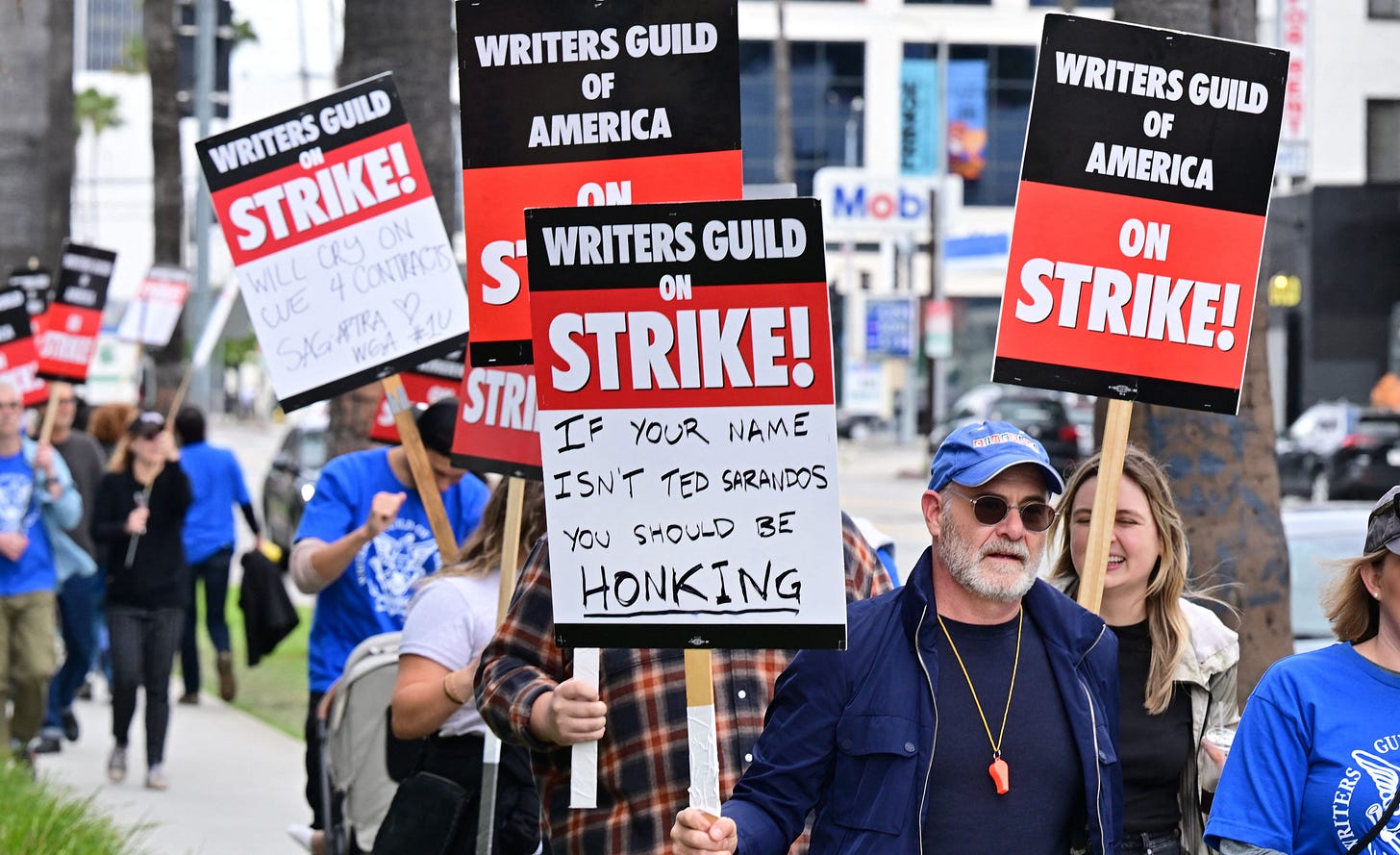Disney and Netflix Content Cuts Should Worry the WGA
Is the future dark and full of terrors - or flush with cash? How this ends depends on whose vision of entertainment wins
Bloomberg columnist Matt Levine has an ongoing bit that “everything is securities fraud”. Basically, if a company does something wrong and doesn’t disclose it, since it could have a material impact on the stock price, it usually gets sued by someone hoping for a large class action settlement.
Want some examples? Paramount Global was sued for not disclosing then-CEO Les Moonves record of sexual harassment complaints and settlements. AT&T was sued for changing how they calculate HBO Max subscribers. And Disney was just sued last week over streaming revenue claims. And that’s just Hollywood!
Levine pointed out in a recent column that the WGA strike might qualify as securities fraud too.
See, the AMPTP told the WGA negotiating committee that streaming is a terrible, very-no-good business, so they can’t afford to increase writers’ pay. But then all of the studios have been going around, for years, boasting to Wall Street about future streaming profits.
Since both things can’t be true, he writes — securities fraud!
In this case, I think it can both be true that streaming will be profitable, at some point, in the future, but also that streaming’s future is much less valuable than the traditional, olde-timey entertainment business. Indeed, if you’re looking at actions, not deeds, you can see in recent headlines that the streamers themselves are worried about profits:
In fact, entertainment industry cost-cutting is probably one of the key reasons it will be so hard to get a deal done between talent (right now the WGA, but maybe the DGA, SAG, IATSE and who knows who else) and the studios/streamers.
These differing definitions of “profitability” reveal that, at a core level, the WGA and AMPTP have disparate visions of the entertainment industry’s future. And that’s what I want to look at today, the rosy vision of the future embraced by the WGA, and the seemingly and increasingly dismal vision of the future that the entertainment companies see.
In this issue, I will…
Explore whether the 2012-2021 content boom was real or a bubble.
Show the WGA proposed writer’s salary increases on total writer compensation going forward.
Talk about what happens to writers’ pay if Peak TV starts to decline.
How, by cutting content costs, the studios could collectively wipe out the gains of this negotiating round in one swoop.
Look at whether streaming will follow the same disastrous trajectory of digital music sales.
Provide an update on residuals and recent announced removals of streaming TV shows.
Explain what deal point was triggered in 2022 that led to mass cancelations.





